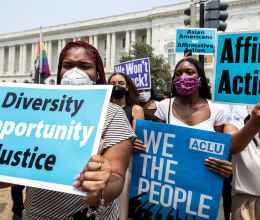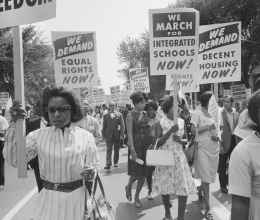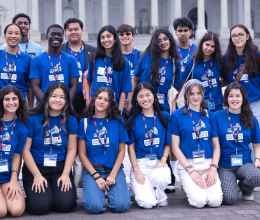
AUSTIN, Texas — The Knight First Amendment Institute at Columbia University and the American Civil Liberties Union of Texas today filed a lawsuit on behalf of nine people who have been blocked from Texas attorney general Ken Paxton’s Twitter account after they criticized him or his policies in their own tweets.
The plaintiffs are asking the court to declare that attorney general Paxton’s practice of blocking critics from his Twitter account violates the First Amendment and to order him to unblock them and anyone else he has blocked due to their viewpoint. The Knight Institute is also a plaintiff in the case, asserting a right to hear the speech of people whom the attorney general has blocked.
“Multiple courts have recognized that government officials who use their social media accounts for official purposes violate the First Amendment if they block people from those accounts on the basis of viewpoint,” said Katie Fallow, a senior staff attorney with the Knight First Amendment Institute. “People shouldn’t be excluded from these important democratic forums simply because an official doesn’t like what they have to say.”
“Attorney general Paxton is preventing Texans from exercising their First Amendment rights. He cannot bar them from directly expressing their criticisms of his policies and qualifications by blocking them on Twitter,” said Kate Huddleston, attorney for the ACLU of Texas. “This is yet another example of the attorney general’s many violations of Texans’ civil rights and liberties and an authoritarian effort to suppress speech with which he disagrees.”
As today’s complaint explains, attorney general Paxton uses the @KenPaxtonTX Twitter account to announce, describe, and defend his policies and legal challenges brought by his office; to comment on national and local issues; and to share news appearances and interviews related to his official duties. These tweets typically generate dozens, if not hundreds, of replies.
Some of the individual plaintiffs in today’s case found themselves blocked from Paxton’s account after they tweeted their views about the attorney general’s qualifications and policies, including tweeting about his efforts to overturn the results of the 2020 presidential election; tweeting about the possibility of Texas reallocating the money spent on the attorney general’s lawsuits and outside counsel for a whistleblower lawsuit against the attorney general to education; commenting on the indictment on multiple felony charges of Paxton, the top law enforcement official in the state; or; tweeting “[W]ear a mask nerd,” after Paxton retweeted a photo of himself and another person at the Conservative Political Action Conference, with neither of them wearing masks.
Both the U.S. Court of Appeals for the Second and Fourth Circuits have held that public officials who block people from their official social media accounts based on viewpoint are violating the First Amendment, while the Eighth Circuit has adopted the same general framework for evaluating social media blocking by government officials. In Knight Institute v. Trump, the Second Circuit held that President Trump could not block users from his @realDonaldTrump account because “he disagree[d] with their speech.” Earlier this week, the Supreme Court found the case to be moot and vacated the Second Circuit decision on that basis, without addressing the merits.
Read more about this case here: https://knightcolumbia.org/cases/knight-institute-v-trump
Read today’s complaint here: https://www.aclutx.org/sites/default/files/paxton_twitter_complaint.pdf
The individual plaintiffs include a U.S. Army veteran, a journalist, a director of a Texas nonprofit, an immigration advocate, two students, a sales representative, a communications project assistant and an attorney.
Lawyers on the case include, in addition to Fallow and Huddleston, Lyndsey Wajert, Jameel Jaffer and Alex Abdo of the Knight First Amendment Institute, and Andre Segura, legal director of the ACLU of Texas.







